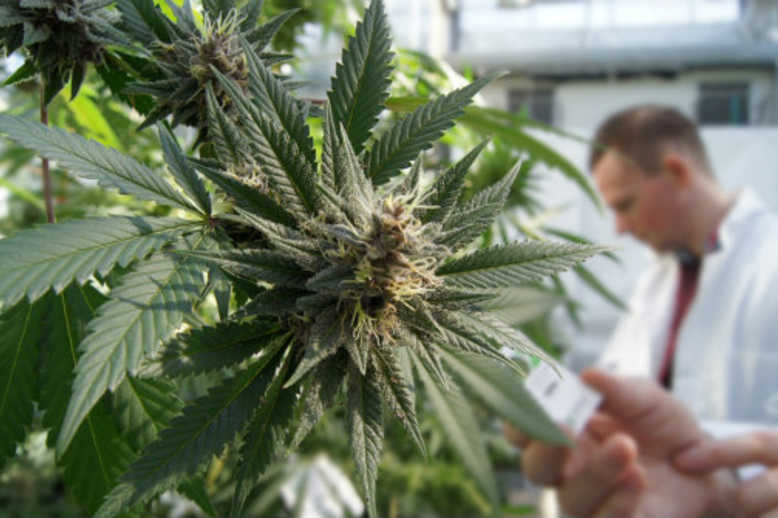One argument that is often made by people in response to proposals for cannabis law reform is that they don’t want to pay for cannabis users’ healthcare. The logic goes that cannabis law reform is unfair on the general populace, because they have to fork out for the inevitable increased healthcare burden through general taxation. As this article will examine, such an attitude is mistaken.
Like many of the false arguments against cannabis law reform, this one relies on another bogeyman. In this case, it’s the supposedly heavy burden that the health system would suffer under if cannabis were to be made legal. This burden would have to be borne by everyone, and it isn’t fair to expect them to do so.
As with many examples of false logic, this argument depends on seeing the situation incorrectly.
For one thing, it’s possible that, if cannabis were to become legal, some of the adverse consequences of its use would become more widespread. But it’s foolish to think that, in such a case, cannabis use would go up while the rates of all other recreational drugs would stay the same.
In reality, recreational cannabis is a competing good to alcohol. A lot of people use it because they find the ritual of rolling up and smoking a joint as relaxing and enjoyable as drinking a beer, and at least as social. Everywhere that cannabis is legal, at least some of the population have decided that they prefer to socialise over some weed than over some booze.
So the supposed “extra” healthcare burden that would be caused by increased cannabis use is balanced, perhaps even several times over, by the savings that accrue from health problems that were prevented by the reduced use of other recreational drugs.
Alcohol abuse is believed to cost the country $4.9 billion per year. The total cost of cannabis use on our health system right now is, even if one uses the ultra-conservative Drug Harm Index, $431 million. This latter figure is not merely the cost of cannabis use to the healthcare system but also ancillary costs, so the true figure is much lower (this latter figure also includes $126 million of costs due to premature death caused by cannabis use and is therefore somewhat fantastical).
So even if legal cannabis doubled the total harm that the Drug Harm Index says that cannabis does to society, this would be more than compensated for if it reduced the total harm done by alcohol by 10% or more.
A second factor to consider is that the cost of cannabis damage is small compared to the cost of old people just clinging onto life for a few more years.
New Zealand’s total healthcare expenditure was $16.8 billion last year, and people aged over 65 used over 42% of that – and that percentage is increasing. So people over 65 use roughly $8 billion dollars’ worth of taxpayers’ money on health costs every year, much of which is wasted on futile attempts to delay a terminal illness.
Even if we ignore that cannabis use is not higher in jurisdictions where it is legal, and even if we ignore that legal cannabis would mean users could use much less harmful routes of administration, and even if we assume that the total healthcare damage would be double under legalisation than what it is now, it still wouldn’t be a great amount of money compared to what is already spent.
The third argument is, of course, that it simply doesn’t matter if cannabis users’ healthcare has to be paid for out of general taxation. As mentioned above, alcohol abuse costs the country almost five billion dollars a year, which amounts to close to $1,600 per taxpayer. If such a high bar is acceptable for alcohol, then its acceptable for cannabis as well.
Cannabis users are, or should be, part of our society the same way as anyone else is. So in the same way that we’re happy to pay for the healthcare costs of cigarette smokers, alcohol drinkers, Olanzapine takers (the side-effects of many psychiatric medicines are bad for the physical health), rugby players, horse riders and mountain climbers, so too should we be happy to pay for the healthcare costs of cannabis users.
Legal cannabis would make it easier to minimise healthcare costs anyway, because doctors would be able to encourage cannabis users to avoid joints and dabs in favour of edibles and vapourisers. So if healthcare costs really are a concern, legal cannabis is better for more than one reason.
In summary, it’s not fair to object to cannabis law reform on the basis that the general taxpayer would have to pay for a sudden massive healthcare burden. A repeal of cannabis prohibition would not lead to such a burden – in fact, a sober look at the experience suggests the overall healthcare cost of recreational drug use would fall if cannabis became legal.
*
This article is an excerpt from The Case For Cannabis Law Reform, compiled by Vince McLeod and due for release by VJM Publishing in the summer of 2018/19.

